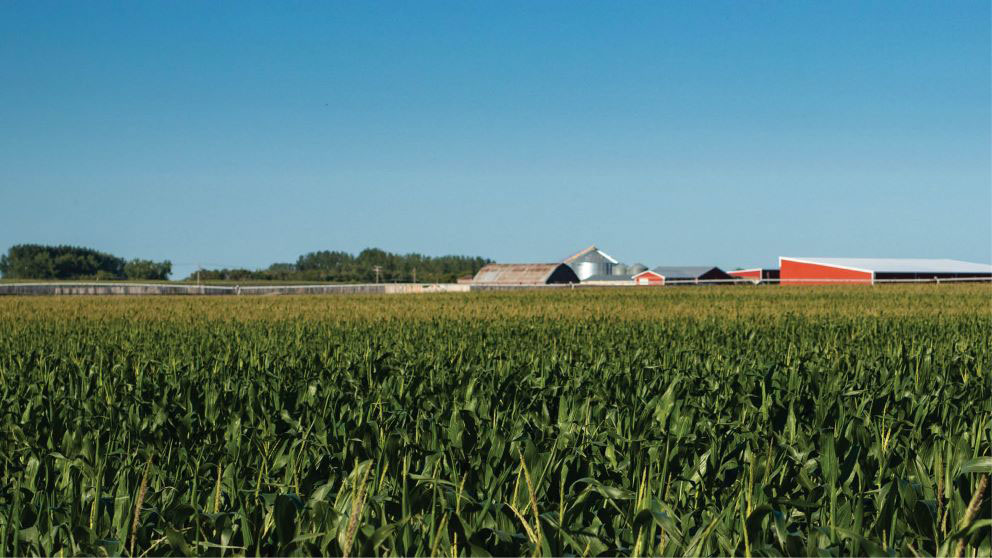How these first-time farmers blazed a trail to business success

For a new farmer building a farm business from scratch, a sound business strategy is a must. With no family-based network to fall back on, these farmers turn to the resources, acumen and innovative thinking that brought them to farming.
There’s a lot to learn from their business experiences.
Farm market inspiration
For Stephanie Lipp and Leo Gillis of Bonavista, Newfoundland and Labrador, mushroom farming wasn’t always on their radar.
Having spent most of their lives in the Greater Toronto area in various non-farming jobs, it wasn’t until a chance visit to a Mississauga farmer’s market in 2018 changed their life’s path.
Lipp, who was known by her friends for her intense dislike of mushrooms, popped a blue oyster gourmet mushroom in her mouth, and the rest is history.
“I couldn’t believe how amazing they were,” she says. “It was instant passion.”
Plan the business
That started a series of events that led them to leave Ontario and head to Newfoundland, Gillis’ home province. By the time they began their operation in 2020, the one thing Lipp rapidly learned is the value of a succinct business plan.
“I didn’t understand why it was so important,” she admits. “But really digging in and writing down your thoughts and ideas, it became very apparent that a plan was needed. Not only that, but it also needs to continue on as a living document.”
As they began to build out their micro-scale mushroom farm, they quickly outgrew their space. They’re now developing a 4,000 square foot indoor farm in Bonavista, one of North America’s most eastern points.
Grow the entrepreneurial spirit
Lipp and Gillis also found out that mushroom farming is about a lot more than just fungi.
Finding the right contractors, experimenting with mushroom growing techniques, navigating Facebook ad marketing, financial forecasting and food safety have been good learning curves for the entrepreneurial couple.
“Having the knowledge and skill to make it happen and the work ethic is very important, but if you don't build the business, there won't be reliable sales channels or a strong growth plan and it won’t be financially viable,” Lipp says. “We’ve discovered how interconnected the various aspects of our business are.”
Create connections
All new farmers should connect with anyone and everyone in their local community. You never know who can help you out.
To better position their farm, which operates primarily at farmers’ markets and through a weekly subscription service, Lipp has joined multiple mentorship groups, including the NL Young Farmers Forum and a provincial business accelerator.
She encourages all new farmers to connect with anyone and everyone in their local community.
“Keep talking about what you want to do with others - you never know who can help you or make a suggestion or connection that can propel you forward, and people love to see other people who are passionate.”
Cattle ranching from the ground up
Starting a farm with no safety net can feel like a blessing or a curse. Fiona Briody, a rancher from Delburne, Alberta, has decided it’s a blessing. An independent rancher since 25, Briody now has more than two decades’ experience as a first-time farmer.
What began with 20 pairs of Black Angus cows is now at a steady 130 head. For her, being new to animal husbandry worked in her favour.
Question everything
“I asked lots of questions that you can’t if you’re born into a generational farm,” she explains. “I wasn’t scared to ask because everyone does things differently, but I wanted to know the basics. I got away with some of those questions. I didn’t have anyone staring over my shoulders saying, ‘That’s not how we do it on this farm.’”
Make a community
Still, she struggled with different aspects of ranch life, especially being on her own. Dealing with severe droughts in the early 2000s made her nearly quit, but neighbours encouraged her and became a port in the storm for her when she felt alone.
“There was inspiration and hope in that,” she explains, referencing the importance of community.
Briody says anyone who wants to get into agriculture can do it if they’re motivated. However, an even bigger challenge is to integrate into what’s likely a brand-new community.
“There are people who want to see people succeed and want to share their knowledge in a fruitful, helpful, supportive way,” she says. “You just have to find those people.”
Know your strengths – and your weaknesses
Similarly, she encourages would-be farmers to challenge themselves, understand their vulnerabilities and work to better themselves and the farm.
“Really learn about yourself - what is your weakness? Not something you just dislike doing but, what do you suck at?
Develop a plan on how you fill that gap otherwise, it’s like a burr in your shoe whenever it comes up.”
Today, as a one-woman show, Briody feels she is maxed out at her operational capacity and intends to focus more time on direct sales and working with new ranchers.
Bottom line
Starting a farm from scratch is a definite challenge, but a solid business plan, entrepreneurial spirit, community connections and lots of questions can help build the path to success.
Article by: Trevor Bacque

Though a crisis may interrupt workflow, if handled well and swiftly it can also bolster your image, reputation and credibility.
